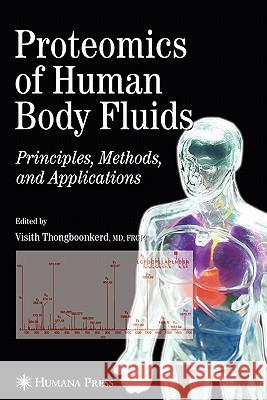Proteomics of Human Body Fluids: Principles, Methods, and Applications » książka
Proteomics of Human Body Fluids: Principles, Methods, and Applications
ISBN-13: 9781617377006 / Angielski / Miękka / 2010 / 533 str.
Rapid growth of the proteomics field during the past twelve years has c- tributed to significant advances in science. To date, proteomic technologies have been widely applied to examining various kinds of biological materials. Clinical proteomics is the concept of using proteomic techniques to evaluate the proteomes in clinical samples for biomarker discovery and for better understa- ing of normal physiology and pathogenic mechanisms of human diseases. Tra- lating the proteomic information to clinical practice may lead to the ultimate goals of earlier diagnosis, improved therapeutic outcome and successful prev- tion of diseases. Human body fluids are produced, secreted, and/or excreted from various tissues or organs. Major compositions of body fluids are water, organic s- stances and inorganic compounds. These compositions vary in each body fluid, making one s function different from the others. Analyses of protein com- nents in individual fluids would increase current knowledge on the biology and physiology of various organ systems, and on the pathophysiology of diseases, which cause alterations in protein production, secretion, and/or excretion from the affected tissues or organs into the body fluids. Additionally, human body fluids are the main targets and valuable sources for biomarker discovery. As the high-throughput capability and applicability of proteomics for analyzing proteins in the body fluids have been already proven, these desires are most likely achievable by using proteomic technologies."











